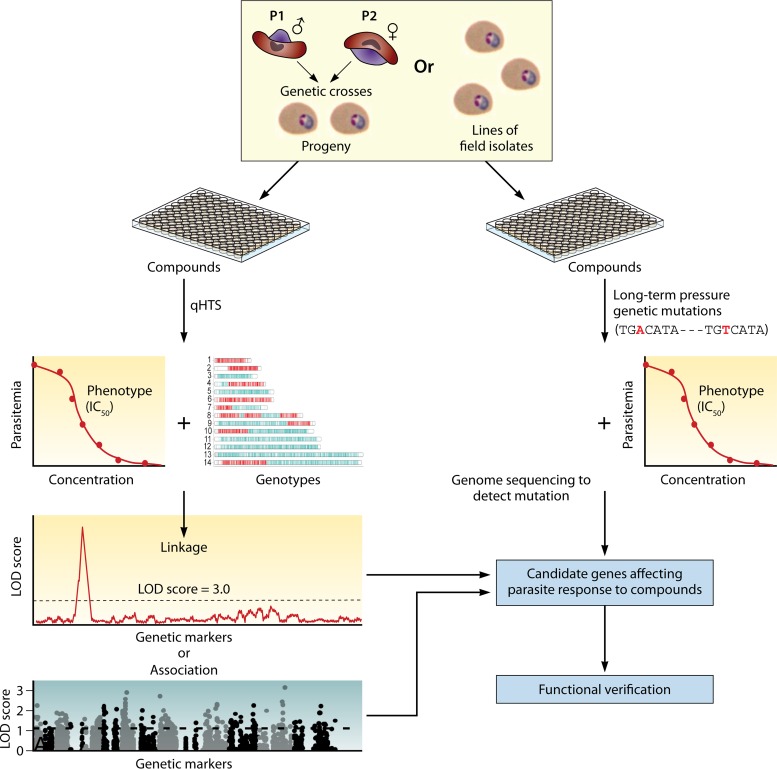FIG 4.
Chemical genomics approaches to identify interactions of small molecules (SMs) and parasite genes. Malaria parasites, either progenies from genetic crosses or field isolates, can be screened for response (half-maximal inhibitory concentration [IC50]) against libraries of SMs using quantitative high-throughput screening (qHTS). Parasites can also be placed under long-term SM pressure for mutations that may play a role in parasite survival. The parasites are genotyped with a large number of genetic markers or are genome sequenced to detect polymorphism or mutations under SM pressure. Linkage analysis, including LGS, or genome-wide association analysis (GWAS) can be performed to link SM and parasite genes playing roles in the SM responses. Genetic mutations and changes in gene expression can be detected after genome sequencing or microarray/RNA-seq from parasites before and after SM pressure. Candidate genes can be further verified using CRISPR/Cas9-based gene knockout, knock-in, or regulation of gene expression to confirm the potential SM target or genes in SM transport.

